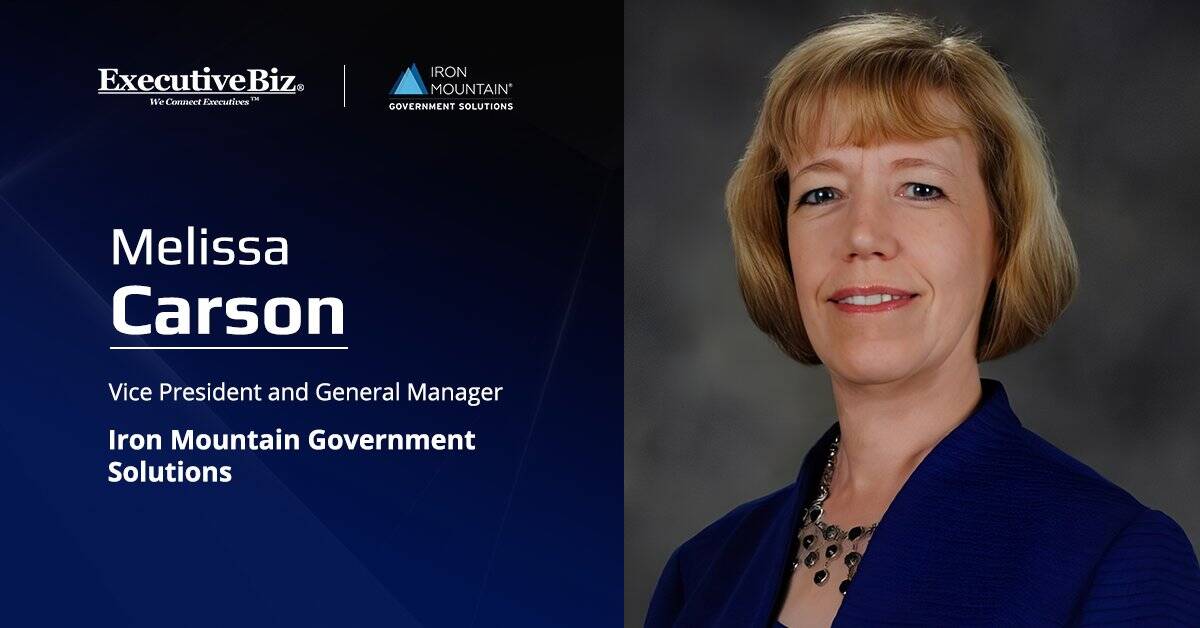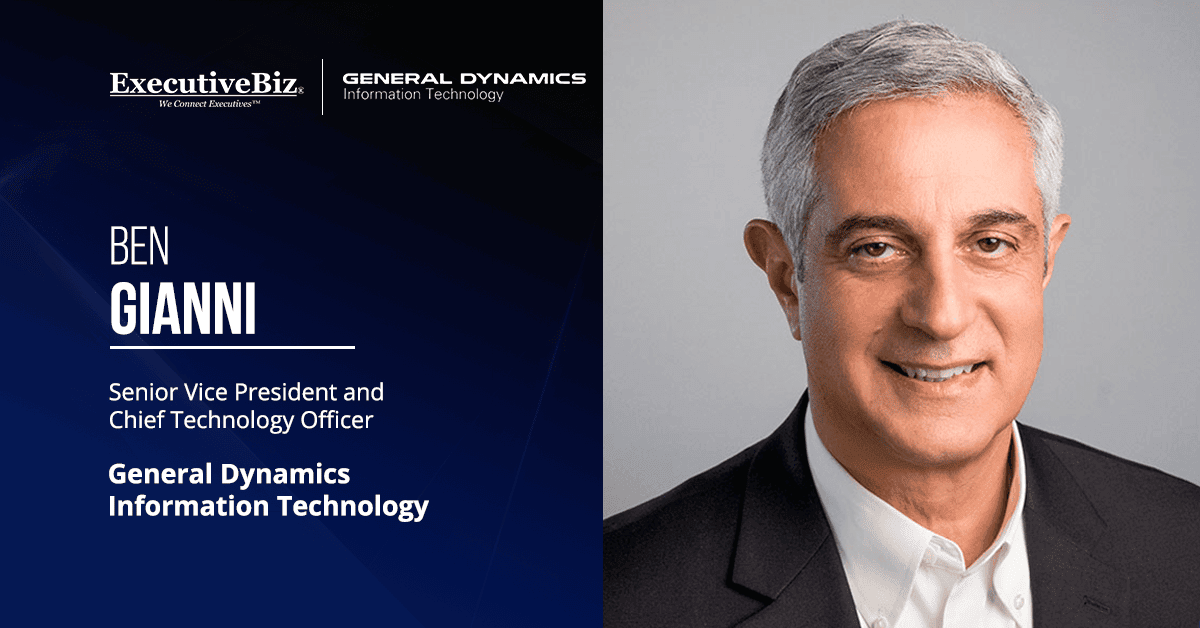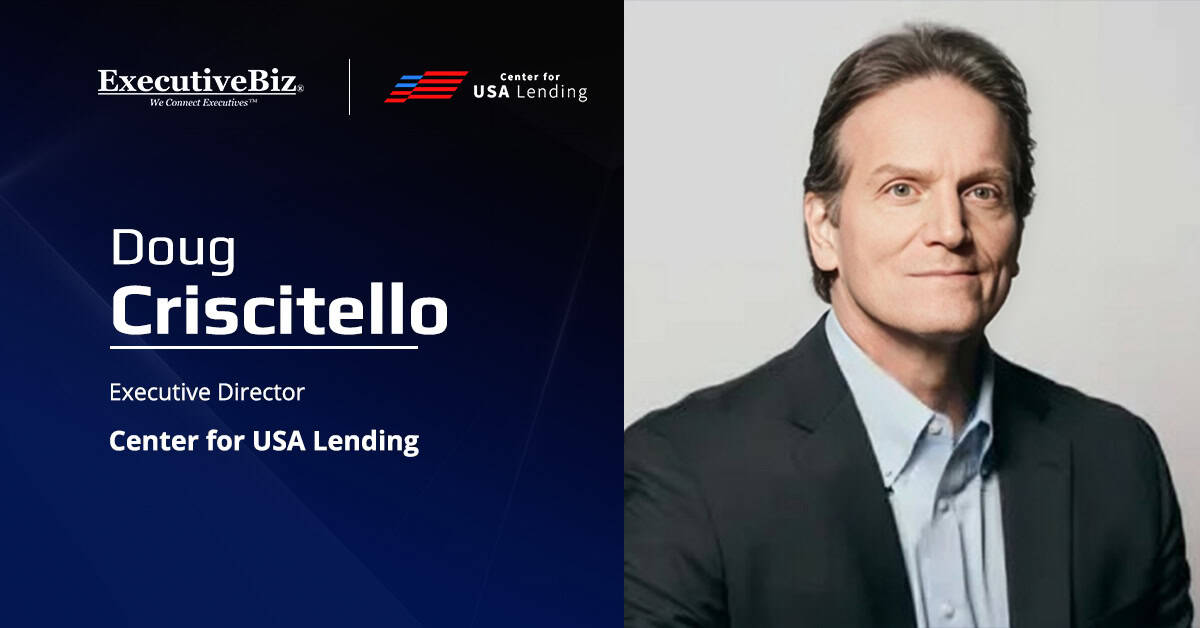No topic gets GovCon executives talking like AI. The technology promises to revolutionize federal business by delivering faster decision-making, improved cybersecurity and enhanced mission effectiveness.
From automating data analysis to optimizing logistics and intelligence, federal officials are looking to AI to help modernize operations, slash costs and gain a technological edge, all while driving massive investment and innovation across the government marketplace.
Who Is Melissa Carson?
Melissa Carson is an information management expert in the GovCon space.
What Does Melissa Carson Do at Iron Mountain Government Solutions?
As vice president and general manager at Iron Mountain Government Solutions, Carson is helping federal agencies prepare for incorporating AI in their work to fully harness its benefits. A GovCon veteran, Carson spent decades at Unisys and Unisys Federal Systems, now part of SAIC, before joining Iron Mountain Government Solutions in 2020.
We last spoke with Carson three years ago for a Spotlight interview. Carson recently sat down with ExecutiveBiz for her latest Spotlight interview to discuss the changing definition of “human in-the-loop,” steps federal agencies should take to prepare their data for AI and how agencies sustain modernization amid funding cuts and workforce shifts.
Discover the latest partnership opportunities in defense and AI at the Potomac Officers Club’s 2026 Defense R&D Summit on Jan. 29! Gain actionable intelligence at the “Powering AI at Mission Scale: Energy, Compute and Infrastructure for Defense Innovation” panel discussion. Get an edge on your competition at this elite GovCon event—sign up today!
ExecutiveBiz: Can you envision a post-human-in-the-loop future with AI? What are the upsides and downsides of this?
Melissa Carson: A fully autonomous future may technically be possible, but it isn’t practical—or responsible—without humans at the center of decision-making. In the federal landscape, data carries policy, historical and ethical weight. AI can help us interpret and accelerate insights from that data, but it cannot understand the nuance of why those insights matter.
What we’re seeing across agencies is a shift in what “human in-the-loop” means. It’s no longer about manual intervention, it’s about informed oversight. The goal is to help people make smarter, quicker decisions with reliable data. This means having a solid foundation with trustworthy information is paramount before any AI gets involved. AI doesn’t make decisions for you, it just makes your judgment even better.
EBiz: What steps should agencies take to ensure their data is ready for AI?
Carson: Before AI can transform government operations, agencies need to change how they think about digitalization. Right now, digitalization is viewed as a simple scanning exercise, such as scanning for compliance, rather than a powerful tool to gather critical insights. The agencies moving the fastest are the ones treating records as valuable data assets that drive automation, not as static archives.
The first step is understanding what you have and where it is stored. Decades of paper files, PDFs and legacy systems often in silos without standard metadata or consistent governance. Without that foundation, even the best AI tools are just guessing. By taking inventory, prioritizing high-impact records and modernizing classification standards, agencies create usable datasets that AI can learn from responsibly.
It’s not glamorous work, but it’s crucial—digitalization is the foundation of modernization. When records are clean, connected and governed, agencies can unlock the kind of automation that accelerates both mission outcomes and compliance confidence.
Are you a GovCon technology executive? Then you can’t afford to miss the Potomac Officers Club’s 2026 Defense R&D Summit on Jan. 29—it’s curated just for you! Spark collaborations with other GovCon titans and score that big contract. Have the fruitful face-to-face conversations only possible at live events. Start 2026 on the right foot—secure your seat today!
EBiz: How can agencies sustain modernization amid funding cuts and workforce shifts?
Carson: We’ve watched agencies lose experienced employees and contracts staff, have funding reduced or cancelled and rely heavily on short-term extensions just to keep critical projects afloat. To sustain modernization amidst these challenges, agencies need to be smarter about how they get things done.
The agencies making progress despite these headwinds are leaning on strong governance frameworks and dependable partners to fill capability gaps. For example, when digital transformation initiatives lose momentum due to agency staffing churn or reductions, having an established, federally-compliant infrastructure, a modern digital record management system and data governance and trusted partners already in place allows work to continue seamlessly.
Sustainable modernization is about designing with disruption in mind. You can’t control the budget cycle, but you can control the integrity and governance of your data, the clarity of serving your mission and the reliability of your partners. That’s what keeps transformation moving forward, even in uncertain conditions.
EBiz: What role does information governance play in building trustworthy AI across government?
Carson: Information governance is the bridge between compliance and trust. It’s what ensures agencies know why data was collected, how it’s classified and when it can be used. Without that structure, AI outputs are at risk of being incomplete or misleading.
Agencies are realizing that governance is not a policy document—it’s an operational discipline. Applying structure to unstructured records and data by capturing and standardizing metadata, classifying information, maintaining audit trails and synchronizing retention schedules with digital workflows make AI explainable and defensible.
When governance is coupled with AI adoption, agencies can move fast without losing control. It’s the difference between AI that simply automates and AI that can withstand scrutiny during audits, Freedom of Information Act requests or public review. In today’s environment, trust in data isn’t optional—it’s mission-critical.
EBiz: What advice would you give to those pursuing executive-level positions in GovCon and looking to accelerate their professional growth?
Carson: Great leaders in GovCon aren’t just strategic, they’re operationally and financially savvy. For aspiring executives, my advice is to stay close to the ground. Talk to program managers and technology experts who are navigating modernization day to day. Learn what slows them down and build solutions that actually remove friction.
Most importantly—stay curious. The leaders who thrive are those who bridge technical literacy with mission purpose, who see modernization not just as an IT initiative, but a way to make government more effective and accountable for the people it serves.
GovCon executive roles are not for the faint of heart. Modernization programs are a journey with many ups and downs. As the government does not operate with any consistency, GovCon leaders require a high degree of patience and tenacity. Despite the challenges, the reward of seeing the transformation of the customers you serve is well worth it…. but it will take time.
Is Iron Mountain a Government Contractor?
Iron Mountain is a data management firm. It has a division, Iron Mountain Government Solutions, that does business with federal, state and local governments.






